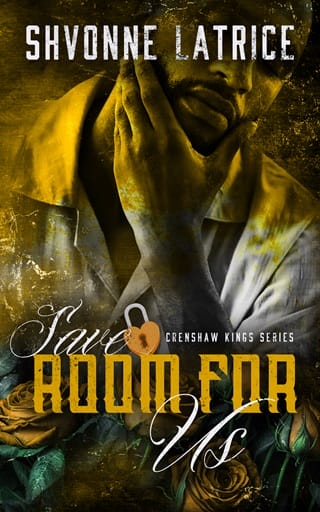Chapter 6
CHAPTER
6
PRESENT
Thursday afternoon, I let the students in HIST-102 out of class ten minutes early to allow myself time to stop by the office. It’s empty, again. Almost a week into the semester and Teddy has held true to his word—he really doesn’t spend much time in the office. If it weren’t for a desk organizer filled with cheap pens and a jacket slung over the back of the chair, I’d almost think I wasn’t sharing the office after all.
I toss a few leftover syllabi onto my desk and begin rummaging through the drawers. Where did I put the meeting agendas? I printed them just this morning, but they seem to have gotten away from me. There’s a tray next to the keyboard stacked with paperwork, but a quick flip through the top few sheets informs me that I didn’t put the agendas in there. I stand on my tippy-toes to peer over the desk. It’s butted up against a wall—not ideal for meeting with students, but it’s an issue of space when you’re sharing an office this small. And there, in the space between the back of the desk and the scuffed oak wainscoting, are my agendas. They must have fallen back there when I shut the door behind me before heading to class.
I stick my hand down the gap, but my arm’s too short to reach. Huffing and swiping a lock of hair from my face, I straighten up and reassess my options with my hands on my hips. I could move the desk, but that seems drastic. Plus, the last time I tried moving furniture without asking for help, I pulled a muscle in my back and my doctor had me on Flexeril for a month. The most logical next step is to see if I can reach from underneath. I drop to my knees and crawl into the leg space, my fingers patting around unseeing behind the solid part of the desk until they make contact with a piece of paper. The pages scattered when they fell, so I pull them out one by one, creasing some of them in the process. The committee members will have to make do.
Someone clears their throat.
I straighten up so fast that I smack my head on the underside of the desk. Sucking air through my teeth, I emerge with the papers in hand, only to find Teddy standing in the doorway. “Holy guacamole, you scared me,” I mutter, massaging the top of my head. He offers me a hand.
“You did that thing again,” he says, pulling me to my feet. “Censoring yourself.”
“Like I said, I’m trying to form better habits.”
We’re standing far closer than we stood on Monday in the break room. He still smells like pencil shavings and Earl Grey tea, but up close like this, I notice that he’s started wearing some sort of cologne as well—it’s subtle and warm and earthy. He releases my hand. My pulse thrums in my fingers, an aftershock.
“Well,” I say, trying to sound light, airy, even though I’m pretty sure my throat is closing up, “I’ve got a meeting on the other side of campus, so I’ve got to—” I wave the stack of crumpled agendas at him, like that’s explanation enough.
He nods. “Right.”
But neither of us moves. I clench and unclench my fingers, willing them to feel normal. Finally, he sidesteps me, clearing the path to the door. I brush past him, but hesitate in the threshold, words bubbling to the surface. “Do you want to walk with me?” Ohmygod what am I doing? “I wouldn’t mind the company.”
His eyes lock with mine. For the briefest of moments, I think he’s going to say no. The same old song and dance: extending an olive branch only for the other person to set it on fire, ad nauseam. But to my surprise, he says, “All right,” and joins me in stepping out into the hall.
Half of me is wondering what I’m doing and the other half is pleased. We can have this, at least. Something polite, friendship vacuum-sealed in professionalism. If I’m being honest with myself, there’s maybe a teensy, tiny part of me that’s been disappointed not to run into him around the office more. Talking to him makes me feel a little less awful about everything that happened between us, all those years ago. Look at us: we’re adults now. We can be cordial without it needing to remind us of how we used to be, and all the ways we went wrong.
We descend the stairs and exit through the north door. There’s a light breeze today, the first hint of autumn beating back the sticky Maryland summer, and it stirs his hair as we make our way across the grassy quad. I try not to watch him out of the corner of my eye, but it’s also impossible to pretend that he’s not there. His hand rests on the strap of his leather laptop bag, his father’s gold signet ring on his finger, so they must be on speaking terms again. Despite the ring and the stuffy roman numeral at the end of his name, his family doesn’t actually come from old money. His dad’s an auto body technician from Philadelphia, and his mom emigrated from Thessaly.
I’m about to ask him how his parents have been, but he speaks first. “You remember that hike up to the overlook, when we were maybe, what, sixteen?” he asks. “You guys all ganged up on me, trying to convince me to say a ‘bad word.’”
I’m surprised he’s bringing up something from our past, but it’s an innocent enough memory. “I told you that there was no such thing as bad words. Just bad intentions.” My mouth twists in a self-deprecating smile. “Which I now realize is debatable, for the record.”
He laughs under his breath. “Every time you say things like ‘holy guacamole,’ all I can think about is that day.”
It’s a good memory. Sweaty, eaten alive by mosquitos, standing victorious on a slab of rock and shouting across the mountaintops until our voices were hoarse. A warm ache spreads behind my breastbone, not caused by anyone or anything in the here and now—it’s more nostalgic, a yearning for another place, another time. Afternoons spent laid out on warm, sunbaked stone, watching the clouds drift overhead and talking about our plans for the future.
I rub my chest with the heel of my palm. “How’d you end up back in Pennsylvania?” I ask. It’s a personal question, but not too personal. “You always said you were going to leave and never look back.”
He blows out a breath. “Just life, I guess.” I raise my eyebrows at him, waiting to see whether he’ll elaborate, but he doesn’t, and I don’t press for more information.
The buildings in the Franklin Complex are squat, one story and brutalist. They were added to the campus in the late seventies to accommodate a flood of enrollment after the end of the war in Vietnam. Somehow, the architecture is reflective of the zeitgeist. Nowadays, though, the complex is strangely juxtaposed with the more classic brick buildings that make up the rest of campus. There is no ivy creeping up the concrete walls here, no romanticism in the dry, fluffy plumes of bottlebrush that line the planters. We enter the first building and he walks me to the conference room. I expect we’ll say our awkward goodbyes and then I’ll head inside, but when I stop beside the weighty metal door numbered 106, he tugs it open and says, “After you.”
Five boxes of cold hot-and-ready pizza are laid out on the conference room table, spoils of an earlier meeting. Gary’s already seated at the table. His salt-and-pepper head is bent over his phone and he doesn’t bother to glance up at our arrival.
“You’re free to take off, by the way,” I say to Teddy as I flip the lids on the boxes in search of pineapple and Canadian bacon. No such luck. “These meetings aren’t all that exciting.” I take a slice of cheese pizza, cradling it in a napkin, and seat myself at the end of the table.
“I’ve got an hour to kill before my next lecture.” He takes a seat, leaving an empty chair between us, and scoots into the table. “I hope you don’t mind. You’re the only person I know around here besides Julien.”
It’s easy to forget that Teddy isn’t super comfortable putting himself out there and introducing himself to new people. He’s soft-spoken, but it reads more like quiet confidence than social awkwardness. “Mmm.” I finish chewing my pizza and swallow. “I can remedy that.” I gesture back and forth across the table. “Gary, Teddy. Teddy’s a visiting professor of history from Carnegie Mellon.”
Teddy rises out of his seat to offer a handshake across the table. “Most people call me ‘Ted’ these days.”
He probably only means to gently correct me, but it’s a pointed reminder that I don’t know him anymore. Gary sets down his phone just long enough to reach across the table and give Teddy’s hand a firm shake. “Tartans, huh? Still haven’t forgiven you guys for that touchdown in the final quarter last season.”
I assume he’s talking about football—I’m peripherally aware that Irving is a Division III school, but sports aren’t really my thing. Last I checked, they weren’t Teddy’s thing either, and it seems that much hasn’t changed, because he chuckles awkwardly and changes the subject. “How was your summer?”
“Great,” Gary says. “It’s the coming back part that’s not so great. Not even a week into the semester, and Jane’s already called me into her office to talk grading policies.”
Gary Reid has been teaching at Irving for over a decade now. In that time, he’s racked up an impressive twenty-seven official complaints, most of them centered around his insistence on guarding any grade higher than a C+ like a greedy dragon brooding over a gold hoard. Supposedly he gave an A- to a girl in ’07, but that’s something of an urban legend—I haven’t seen any tangible proof. He’s one pissed-off student away from an opinion piece about professors on power trips.
The door to the conference room swings wide, and two others enter: a long-legged man with a halo of sparse, sandy hair, and a woman with a blunt bob, her pashmina shawl whirling behind her like a cape. They’re absorbed in a conversation about Zoom lectures and they don’t stop on our account, though the woman does toss Teddy a quick—if quizzical—smile.
“—whether they reached some consensus about the camera policy,” the woman is saying as she draws out a chair beside Gary.
“Well, not in the organizational sense.” The man withdraws a yellow legal pad from his briefcase and slaps it on the table in front of him. “I’d say if there was a consensus—forgive me, that might be too strong a word—then it was an agreement that these matters need to be addressed on a case-by-case basis, with varying circumstances taken into consideration.”
Now that everyone’s here, I shovel down the rest of my pizza and wipe my greasy fingers on the napkin before passing out the agendas. They’re short, to the point: meeting times, application deadline , award ceremony. I know better than to expect that we’re going to cover all of this today, but I’m determined to start strong.
Before we get down to business, I introduce Teddy to the other committee members. I can’t quite bring myself to call him “Ted,” so I opt for his full name instead. I point my mechanical pencil at the woman wrapped in the shawl. “This is Trina Madhani from the Art Department. She’s our treasurer. And this is Dean Goodman, our secretary.” The lanky man looks up from scribbling on his legal pad and gives Teddy a curt nod. The notes he’s made so far are shorthand and indecipherable, like the Voynich manuscript, or a prescription from a doctor.
“Pleasure to meet you both,” Teddy says. His gaze lingers on Goodman for a moment before he clears his throat and adds, “Sorry, you’re the dean of…?”
Goodman sighs without looking up from his notepad. “Alas, I’m a Dean by birth, not by title.”
Teddy shoots me a quizzical look.
“What he means by that,” I clarify, “is that Dean is his legal name. He’s an instructor in the English Literature Department.”
“We mostly call him Goodman to avoid the confusion,” Trina says with a wink.
“And I’m just a committee member,” Gary adds. Despite the lack of any real responsibilities that come with his title, he manages to make it sound very burdensome.
“All right. So, first on the agenda,” I continue, “we have the matter of setting a deadline for the scholarship applications this year. Last year we set it at November thirtieth for spring applicants, but I feel like an earlier deadline might leave us more time for review.”
For the next forty-five minutes or so, we knock out items on the agenda. Teddy stays quiet throughout most of it, listening more than he speaks, but his presence is distracting anyway—my eye is repeatedly drawn to him. It’s true that I was always something of a social safety net for him when we were younger. But he’s a lot older now. He’s held down the same job for seven or eight years, brushed shoulders with scholars from Oxford and Stanford and Tsinghua. He shouldn’t need a safety net.
Not that I don’t like having him around. The problem is that I do, and I’m wary of liking it too much. Of a false sense of security, lulled by the thought that maybe, just maybe, we can be friends again.
“We’ve got about ten minutes to wrap things up,” Gary announces, jolting me from my reverie.
“Right.” I look back at the agenda. “Before we go, I wanted to touch on our fundraising efforts really quick. I’ve already mentioned to a couple of you that I’m putting myself forward for tenure in December.” This earns a half-interested nod from Trina and a few scribbles from Goodman. I’m the only member of the scholarship committee who’s not already tenured—it’s part of the reason I was elected committee chair, spring semester before last. With no dossiers to flesh out, none of the others were all that interested in taking on the responsibility. “Julien called to my attention that it might be helpful if we ramp up our fundraising efforts this year.”
Gary scoffs. “With what? Bake sales? Should we erect a lemonade stand on the corner of Pike Street and McCulloh?” He shakes his head. “It’s a drop in the bucket.”
“The majority of our scholarships are dependent on endowments,” Trina points out, scratching her eyebrow with the eraser of her mechanical pencil. “And the ones that aren’t typically come from the same pool of donors. Outside of finding someone with heaps of money on their deathbed, I’m not sure we can do all that much to move the needle.”
“I think we’re already doing all we can to raise funding,” Goodman adds. “It’s kind of the whole point.”
I’m a little crestfallen that their opposition to the idea is so immediate, but they’re not wrong —I’ve been grasping at straws ever since Julien brought it up. It’s not easy convincing people to fork over their hard-earned cash, and it’s complicated by the pervasive belief that upper education is a luxury. A lot of people advocate for students paying for it out of their own pockets, no matter how many integral jobs require a bachelor’s degree or beyond.
“What about a gala?”
Every head in the room swivels toward Teddy. He’s got his arms folded on the oak table in front of him, and at the sudden attention, his shoulders stiffen. “I know it’s not my place—”
“No,” Trina says slowly, watching him with her head quirked to one side. “Go on.”
Some of the tension seeps out of him, and he clears his throat. “A gala gives people something interesting to do, in a town this size.” While he talks, Trina clicks her mechanical pencil against her notepad, eyes narrow. “And it would appeal to both town and gown. You lure people in with food and entertainment. Charge some sort of cover fee. And Clara’s always been great at organizing things,” he finishes, almost as an afterthought. He glances over at me but looks away again just as soon. I didn’t think much of it when we first met, but as the years went by, I used to love studying his face in profile—the curve of his nose, and the hard angle where his jaw met with his ear. I force myself to look at the agenda, pretending to jot something down.
For a moment, only the clicking of Trina’s mechanical pencil fills the silence—not frantic or anxious, but steady, rhythmic. Click. Pause. Click. Then Goodman makes an odd sound, somewhere between a huff and a cough. “We’re not exactly the Met.”
That’s my cue to jump in. “We have countless applicants every year who would love to attend Irving if they had the proper financial assistance. But there’s an obvious shortage of scholarships to go around. If we could raise—”
“But just hosting the gala would cost out of pocket,” Trina interrupts, hesitantly. I know that tone—she wants to help me out here, but she’s pragmatic to a fault. “This isn’t some estab lished tradition we’re talking about. There’s no guarantee we wouldn’t lose money on it.”
“So plan on a volunteer basis,” Teddy suggests. “Reach out to local businesses, see whether any alums are interested in helping out.”
“We could contact the local party supply store and see whether they’d be willing to donate old stock in exchange for putting their name on the flyers as a sponsor,” I suggest. “And we could see if there are any local restaurants that would be willing to cater.”
Trina leans back in her chair, arms folded, but she’s not rejecting the idea outright, and I take that as a positive sign. Goodman’s hunched over his legal pad, scribbling.
“Might I point out that this conversation is nowhere on the agenda,” Gary says. “I move to shelve it and discuss it next meeting.”
“We’re already discussing it,” Trina counters, a touch of impatience in her voice. She locks eyes with me. “It’s a good idea, but planning a gala doesn’t fall under our jurisdiction, so to speak. It’s the sort of thing that would normally be delegated to a subcommittee.”
I withhold a sigh. Trina is like a walking, talking copy of Robert’s Rules of Order, which is very helpful when we need to make sure we’re covering all our bases, but at times like this, it gets tedious. “In that case,” I say, “who’d like to be on the subcommittee?”
Gary doesn’t bother looking up from his phone. “Not interested.”
“I’m busy,” Goodman says.
“We haven’t even settled on a meeting time,” I remind him, but he just shrugs.
Trina gives me an apologetic look. “I’m already spread a bit thin between this and assistant coaching my daughter’s soccer team.”
This time, I don’t bother withholding the sigh. “Okay, so nix the gala idea, then.”
“Put me on the subcommittee,” Teddy says.
I look up from the agenda, frowning. “But you’re only visiting.”
“And you only need the subcommittee for one semester. Right? You plan the gala for this fall and then you apply for tenure. After that, you won’t need me, anyway.”
Need—that’s a funny word. There was a time when I thought that I needed him like I needed oxygen, that everything would come crumbling down if I wasn’t able to call him every night before bed, every time I had a fight with my mom or bombed an exam. It was a na?ve, childlike understanding of what it meant to love someone, because the truth, as it turns out, is that you don’t need anyone. You can love them with all your heart, but you don’t need them. When they walk away, you don’t stop breathing. The world keeps spinning, and life goes on.
“As chair of the scholarship committee, I would need to be present for all subcommittee meetings,” I point out, as diplomatically as I can. I want to make sure he knows what he’s signing on for.
He nods. “Makes sense to me.”
I hold his gaze for a couple of seconds before turning to Trina for approval.
“There aren’t any rules against a visiting professor serving on a committee as far as I’m aware,” she says slowly.
I mull over my options. It’s a solid idea. And we’ve managed to be civil so far. Plus, I was already anticipating seeing Teddy around campus—a few subcommittee meetings shouldn’t make much of a difference.
“Someone needs to make the motion,” I say. As chair of the committee, I’m not allowed to initiate the approval process.
Trina raises her hand. “I move to form a gala subcommittee.”
There’s a pregnant pause, and for a split second, I wonder if the other two committee members are going to outright refuse to participate. But then Goodman heaves a sigh and tosses up a hand. “I second the motion.”
“All in favor, by show of hands?” I ask. Everyone but Gary holds their hand up, including Teddy, though he’s not officially on this committee yet, so his vote doesn’t count. “All opposed?”
Everyone looks at Gary. Picking up on the sudden silence, he tears his eyes from his phone, forehead wrinkled, and glances around the table. “I’m sorry, were we voting on something?”
“Doesn’t matter,” Goodman says, adding something to his notes—or maybe doodling a stick-figure of Gary. Hard to say for sure. “It passes anyway.”
It’s a little after six and I’m locking up my office for the evening when my phone buzzes from somewhere inside my messenger bag. I fish it out of the side pouch. Two missed calls—one spam and one from Izzy. It must have gone straight to voice mail. Service is always a little spotty in these old buildings.
Izzy: Omg missed you again!! I feel like we need to schedule something at this point
I smile and shake my head, pocketing my keys and tapping out a message as I make my way down the hall to the stairwell. Izzy’s always been better at communicating face-to-face. For a while, after her move to Lisbon, we managed to organize monthly Skype calls— coffee and catch-up, we called them—where we’d each head to a local café, connect to the Wi-Fi, and pretend we were out to brunch together. But after a while, even that fell by the wayside, lost in the hustle and bustle of our two very different schedules.
Clara: Just leaving work. Let’s talk this weekend?
Izzy: Can’t. Headed to Porto Santo with the new girl I’m seeing:/
Clara: Poor you!
Izzy: lol shush!!
Izzy: We’ll talk soon. Promise!! xoxo
I pause at the top of the stairs, my thumbs hovering over the screen. Izzy would drop everything to hop on the phone if I gave any indication that it was important, but then again, it’s not really all that important, is it? There’s nothing urgent about the situation with Teddy, or tenure, or this gala I’m supposed to be planning. I can’t justify creating something out of nothing.
Clara: Sounds good. Have fun in Porto Santo. Love you lots!
“You really shouldn’t text on the stairs.”
A deep, steady voice echoes in the stairwell—unmistakable—and I rip my eyes from my phone. Teddy’s staring up at me from the landing between floors, laptop bag slung over his broad shoulder and his hands stuffed into the pockets of crisp brown slacks that flatter his long legs. “More than half of workplace injuries happen due to negligent use of staircases, you know.”
“And eighty-three percent of statistics are made up on the spot,” I fire back. The corner of his mouth quirks—not quite a smile, but the ghost of something familiar. It’s that feeling of passing a stranger on the sidewalk, certain you recognize them from somewhere, but when you do a double take to try to place them, you’ve lost them in the crowd. “What are you still doing here?” I ask.
“Just finished up for the night,” he says. “I was coming to check whether you’d locked up the office.”
I nod. “Walk with me to my car?” I ask, tentatively. Wes keeps a close eye on the parking lot, so I’m safe walking alone, but I want a chance to talk. After the meeting earlier, Teddy had left in a rush, almost late for his 4 P.M. lecture.
“Sure,” he says. His dark eyes are glued to me as I stow my phone in my messenger bag and march down the stairs, joining him on the landing. “I’m heading that direction anyway.” He sweeps a hand in front of him, as though to say ladies first, and follows me down the stairs.
We exit the Hall of Letters into the clear September evening, the sky a muted, dusty blue in the fading daylight. “I wanted to thank you,” I say, “for the gala idea, but more so for offering to be on the subcommittee. I know it doesn’t really… benefit you, I guess, to volunteer for a campus you’re only visiting, so I just wanted to make it clear how much I appreciate that.”
He’s quiet for a beat, staring at the pavement as we make our way to my car. “If people only volunteered when it benefitted them, I think the world would be a little worse off.”
I don’t know what to say to that, so I nod. I should know better than to think he’d offer to help just for my sake, but maybe a part of me had selfishly hoped.
“I was thinking maybe we could meet Friday afternoons, maybe around four?” he suggests.
“That works for me.” We reach my old Volvo—easily the ugliest of the faculty vehicles with its peeling blue paint. A pine tree air freshener dangles from the rearview mirror. It lost its freshening abilities months ago. I’ve been too busy to remember to throw the air freshener out, just like I’ve spent the last six years being too busy to go shopping for a new car. “Just for the record, you don’t mean Friday as in tomorrow, do you?”
He arches a brow. “Is there another type of Friday?”
I shake my head. “Scratch that, what I meant to ask is whether it can wait until next week. I’d like to take some time to sort of get my thoughts organized, before we dive in.”
“Completely understandable.” He adjusts the strap of his laptop bag. “I’ll see whether I can figure out a meeting space.”
That should probably be my job, but I don’t argue, because I have more than enough on my plate as it is. I fiddle with the keys in my hand, running my fingers over the tattered Vampire Diaries lanyard I’ve had since I was maybe seventeen, long enough that the print has all but worn off. We’re once again at a strange sort of impasse, neither of us sure how we’re supposed to say goodbye, and it’s making me fidget.
“I’m parked over in Lot G,” he says.
I twist the lanyard between my fingers, nodding. “Right. Well, I’ll see you tomorrow. Or maybe next week, I guess,” I throw out there, because it’s not like I’ve been running into him every day, and I kind of want to test the waters. Figure out what days he’s actually on campus, so I know what to expect.
He holds my gaze for a moment before looking back at his feet, his brow knit. When he looks back up, all he says is, “Good night, Clara,” and he turns to leave.
“Night,” I say to his back. Then I unlock my car and climb into the driver side, wrestling out of my cross-body bag and shoving it onto the passenger seat. I wait for him to disappear around the corner of the Hall of Letters, and then I slump forward with a loud groan, smacking my forehead against the steering wheel. At this rate, I’ll be digging my old iPod Nano out of the closet at Mom and Dad’s house before midterms, skipping around to all the angstiest tracks I can find: Hawthorne Heights or the self-titled album by The Used, probably.
Get yourself together.
When I straighten up, my hair is falling out of my claw clip and into my eyes. I swipe a lock of it out of my mouth and turn the key in the ignition.
 Fullepub
Fullepub 



